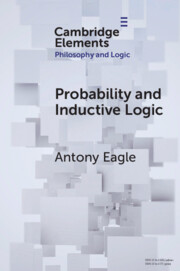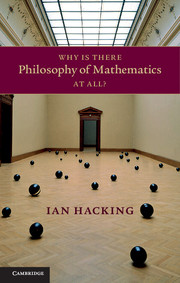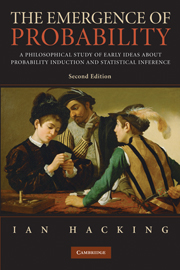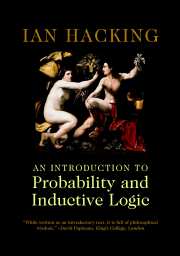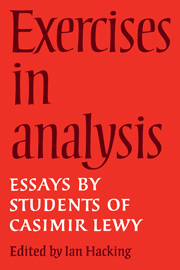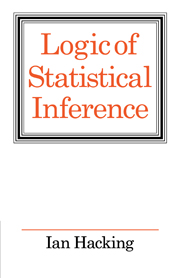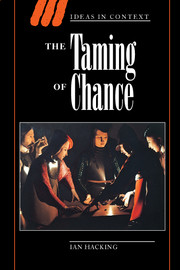An Introduction to Probability and Inductive Logic Desk Examination Edition
This is an introductory textbook on probability and induction written by one of the world's foremost philosophers of science. The book has been designed to offer maximal accessibility to the widest range of students (not only those majoring in philosophy) and assumes no formal training in elementary symbolic logic. It offers a comprehensive course covering all basic definitions of induction and probability, and it considers such topics as decision theory, Bayesianism, frequency ideas, and the philosophical problem of induction. The key features of the book are a lively and vigorous prose style; lucid and systematic organisation and presentation of the ideas; many practical applications; a rich supply of exercises drawing on examples from such fields as psychology, ecology, economics, bioethics, engineering, and political science; numerous brief historical accounts of how fundamental ideas of probability and induction developed; a full bibliography of further reading. Although designed primarily for courses in philosophy, the book could certainly be read and enjoyed by those in the social sciences (particularly psychology, economics, political science and sociology) or medical sciences (such as epidemiology) seeking a reader-friendly account of the basic ideas of probability and induction.
Reviews & endorsements
'While written as an introductory text, it is full of philosophical wisdom. Moreover, this is wisdom that most students of philosophy need but find very hard to acquire. Hacking explains all the basic ideas of probability theory, the philosophical puzzles they raise, the standard lines of response, their strengths and weaknesses. He writes with the authority of someone who has helped from the debates and understands everything properly, but at the same time he gives a fair hearing to all positions worth taking seriously. At some point in the career of most philosophy students, graduates and undergraduates alike, they read stuff, which uses probabilistic ideas and turn to their teachers for guidance. I can imagine that the teachers' automatic response for some decades to come will be to send these students to Hacking.' David Papineau, King's College, London
'Hacking's textbook is likely to become the standard for inductive logic courses. He writes simply, in a lively style, without oversimplification … Lively and original examples drawn from everyday life create the appropriate context to prepare students to think critically about the barrage of statistical arguments that confront us on a daily basis … Hacking's textbook sheds much needed light on the mystique of statistical reasoning.' Katherine van Uum, Grinnell College, Iowa
Product details
October 2001Paperback
9780521005340
0 pages
255 × 177 × 19 mm
0.669kg
Unavailable - out of print January 2010
Table of Contents
- A note on the cover illustration
- Foreword
- Odd Questions
- 1. Logic
- 2. How to calculate probabilities
- 3. How to combine probabilities and utilities
- 4. Kinds of probability
- 5. Probability as a measure of belief
- 6. Probability as frequency
- 7. Probability applied to philosophy
- Answers to the exercises
- Further reading
- Index


